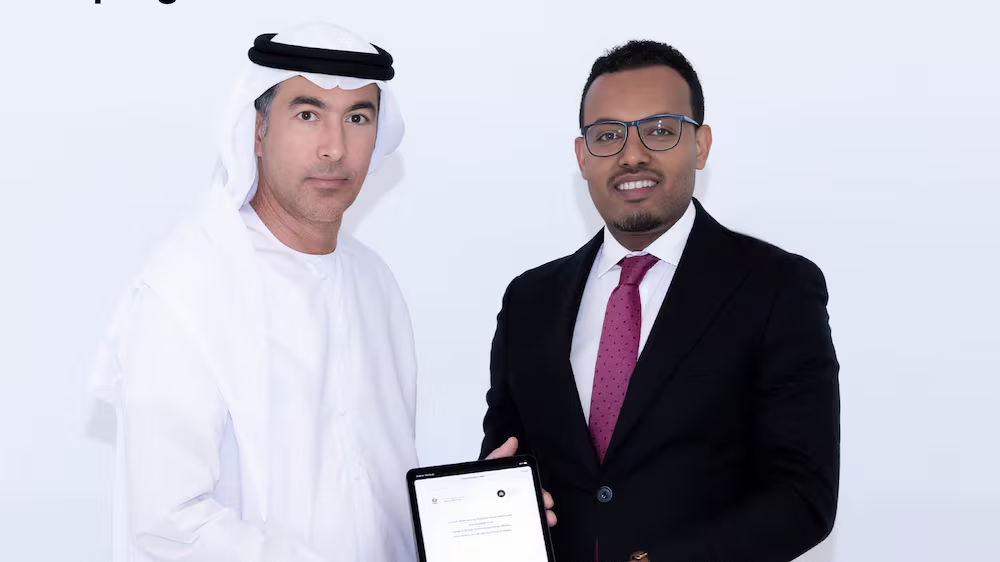
The first priority for me is the question of statehood gaining recognition for Somaliland
Omar Shariff, Deputy GCC/Middle East Editor
Hargeisa, Somaliland: “We are seeking to exploit what belongs to us: our natural resources,” said Muse Bihi Abdi, the President of Somaliland, a self-declared independent republic in the Horn of Africa. “And we are trying to make massive use of our strategic location.” Abdi, who was elected president in November 2017, was speaking to reporters at his presidential palace, and took questions on a range of issues – from domestic challenges and relations with Somalia to business dealings with the Gulf states and leveraging the strategic location of his republic. Excerpts:
As the newly-elected President, what are your main priorities for Somaliland?
The first priority for me is the question of statehood ¬– gaining recognition for Somaliland. Most UN member states say this is an issue for Somalia and Somaliland to solve [bilaterally]. But the problem lies in Somalia; the country is in chaos. So it’s difficult to deal with Somalia for recognition, as it is itself not stable. [Somalia President Mohammad Abdullahi] ‘Farmajo’ doesn’t represent [his people]. He cannot make decisions; in fact he needs foreign forces to protect him.
You have to understand: We are not secessionists. We entered into a union with Somalia. Now, it is a matter of retreating from that union. We were different colonies. What you have in the south is the Federal Republic of Somalia, which consists of about six federal states. We are not part of them. (Editorial note: The Somaliland government sees itself as the successor state to the colonial-era British Protectorate of Somaliland).
Our second challenge is that of poverty. Twenty seven years without recognition and 10 years of war against the regime of Siad Barre [president of Somalia from 1969 to 1991] has left us in poverty.
Our third challenge is climate change, which is impacting this region very negatively. Rains are much less, from 400mm earlier to about 200mm now. And this is hitting our economic activity: livestock. This is our main product [for export]. Climate change has led to shortage of grass; 60% of the animals have died. Livestock is diminishing.
Our last challenge is the instability in our neighbourhood. You have countries like Somalia and Yemen. Sixty per cent of our entire budget [$281 million for this fiscal year] goes towards security.
So what is your approach?
We are seeking to exploit what belongs to us: our natural resources, like oil. Several companies have shown interest. Another resource we have is the sea. Our people are not [seafarers]. Most were herders. We have 800km of coastline yet most people in Somalia do not eat fish; they have enough livestock.
The issue has also got to do with the approach to the coast [from the hinterland]. It’s a mountainous region. And roads are costly to build.
Then, there are skills. We want to take the Asian approach, like Philippines, India, Thailand – they send to the world a professional class of people. That’s what we need to do. The aim is to ensure that our people are very, very skilled in whatever they do.
Second, we want to be self-sufficient. And we are a peaceful people. We want to be a friend [to all nations].
Are you leveraging your strategic location?
Sometimes wealth is a curse. Take the example of the Democratic Republic of Congo. They have all the natural wealth, but they have had armed conflict for 60 years. Here, we do have a strategic location, and that is our wealth. But it can also become a negative thing, a curse. All the colonials had an interest in the Horn of Africa precisely because of the strategic location. It’s a transshipment route.
Now, terrorists are focusing on this region. With our meagre budget, we are defending an 800km coastline – without any assistance from anyone.
So, from our point of view, we have to be strategic and realise who is a friend of ours, and who is just exploiting us. Keeping all this is mind, we are trying to make massive use of our strategic location.
Who are your chief allies?
We have very close ties to Saudi Arabia and the UAE. Saudi Arabia is a neighbour; it’s very close to us. All our exports go to Saudi Arabia. And there are two holy mosques there where our people go on pilgrimage. And the UAE – all our business assets are in Dubai, our economic activity depends on the UAE, the flights, the ports etc. This is because the UAE people are a business people. They have managed to attract the entire world to their country. Our economic interests lie with Saudi Arabia and the UAE.
You were a fighter pilot in Somalia air force. How have the actions of the Barre regime against Somaliland impacted your worldview and your approach to Somaliland independence?
In 1981, we constituted the armed group Somaliland Nationalist Movement. We took to the jungles and fought against Siad Barre’s regime. His bombardment of Hargeisa [the capital of Somaliland] was so extreme that 99% of the city was destroyed. For three months in 1988, his MiG-17s and MiG-19s were in the skies above Hargeisa for three hours a day, each day. It was stated by the UN then that 50,000 people had been killed in these three months in 1988. We have so far discovered and documented 55 mass graves in Somaliland. The Committee of the Massacres has videos of these mass graves. Most of the world does not know of it. So yes, Barre’s regime was difficult to live with. That’s why we got our independence. And we are a people who want to build a country.





















![New PM Starmer names first cabinet after landslide win British Prime Minister Keir Starmer looks on, at Number 10 Downing Street, following the results of the election, in London, UK, July 5, 2024 [Kevin Coombs/Reuters]](https://i0.wp.com/www.horndiplomat.com/wp-content/uploads/2024/07/2024-07-05T115520Z_52034812_RC2ZO8AP0G9J_RTRMADP_3_BRITAIN-ELECTION-1720202222.webp?resize=100%2C70&ssl=1)








